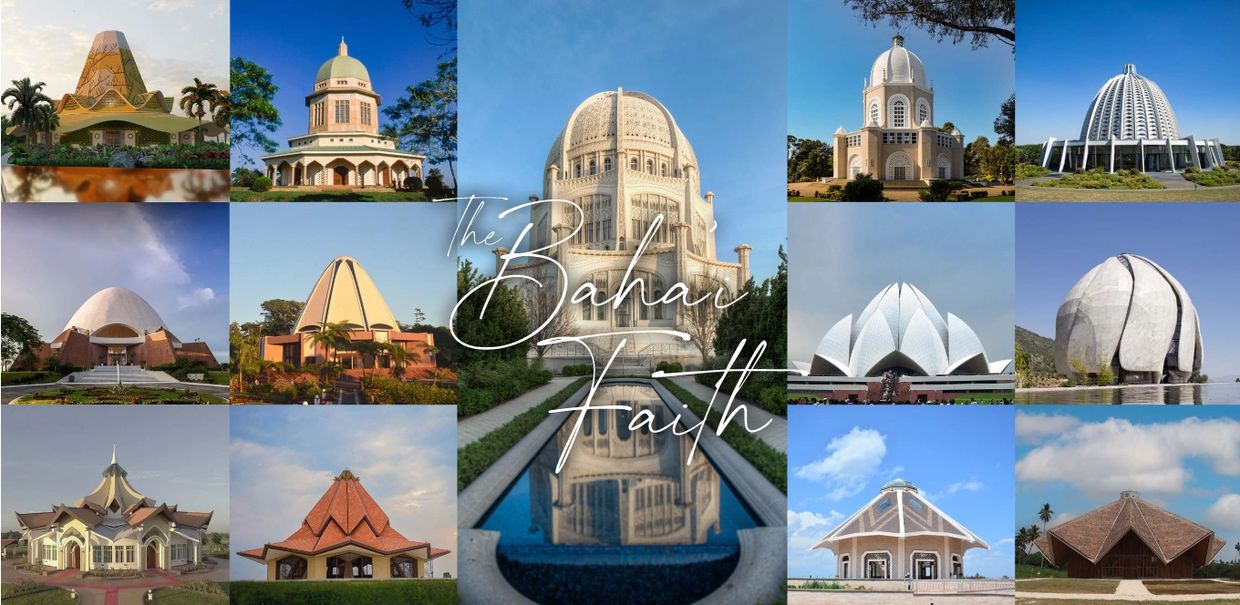Throughout history, many individuals have felt compelled to explore new spiritual horizons, leading them to embrace a faith that resonates with their innermost beliefs. Among these seekers, there exists a fascinating narrative concerning the first Christian to convert to the Bahá’í Faith. This transformative journey illuminates the dynamism of religious experience and highlights a remarkable leap of faith. But what motivates such a profound shift? Can an individual genuinely reorient their spiritual compass in pursuit of enlightenment?
At the crux of this spirited inquiry lies the escalating intersection of faith and reason. The individual in question, whose journey is emblematic of a broader phenomenon, navigated the intricate interplay between their Christian heritage and the compelling tenets of the Bahá’í Faith. While this encounter was undoubtedly challenging, it simultaneously served as a rich tapestry woven with insights, revelations, and religious synthesis.
Initially, the individual’s grounding in Christianity provided a robust theological framework, shaped by centuries of tradition. The Christian doctrine, with its emphasis on love, compassion, and the divine nature of Jesus Christ, served as a launching pad for exploring alternative paradigms. While deeply rooted in this faith, the emerging questions of universalism, social justice, and global unity began to resonate profoundly, prompting the transition to the Bahá’í Faith.
The Bahá’í teachings promote the concept of the oneness of humanity, which starkly contrasts the often sectarian divisions found within more traditional faiths. This central tenet poses a compelling challenge to the adherent’s previous understanding of religious exclusivity. Was it feasible to harmonize the love and compassion emphasized in Christianity within the broader, more inclusive narrative proposed by the Bahá’í Faith? Here lies the heart of the individual’s spiritual quandary.
As one explores the teachings of Bahá’u’lláh, the founder of the Bahá’í Faith, it becomes evident that the pursuit of truth transcends any singular religious tradition. The divine revelations presented through Bahá’u’lláh amplify the significance of progressive revelation—a belief that each major world religion offers essential truths that build upon one another. Consequently, the Bahá’í adherent is encouraged to recognize the value embedded in all spiritual traditions, including Christianity. This acknowledgement is not merely academic; it intertwines with the lived experience of faith and community.
The theological considerations extend beyond philosophy and into practical implications for daily life. Engaging with the Bahá’í teachings fosters a sense of global citizenship, endorsing acts of service, social action, and unity among diverse populations. For the first Christian to become a Bahá’í, reconciling these ideals with the previously held beliefs of personal salvation introduces a provocative challenge. Does embracing a broader vision of humanity dilute the individual’s spiritual fervor, or does it, instead, enhance the capacity for love and service?
Through fervent exploration and mental rigor, this early Bahá’í convert found that engagement with the tenets of the Bahá’í Faith did not occlude their Christian beliefs but rather expanded them. The foundations of faith they once cherished were reinterpreted through the lens of Bahá’í principles. The life and sacrifice of Jesus embodied in the spirit of selflessness and service transcended into a collective mission for the betterment of the world. Thus, it became increasingly apparent that this leap of faith signifies not a departure but an expansion of spiritual understanding.
Embracing the Bahá’í Faith invites individuals to embark on a transformative journey of personal reflection and communal responsibility. It challenges the adherent to critically assess dogma, religious divisions, and societal injustices while fostering an inclusive attitude. This transition requires an unwavering commitment to the pursuit of truth, justice, and unity—core tenets that continue to inspire followers worldwide. Is it possible that this historical conversion speaks to a burgeoning trend of interfaith engagement? Or could it symbolize an evolutionary stepping stone for humanity towards greater comprehension of spiritual interconnectedness?
As the first Christian to accept the Bahá’í Faith illustrates, embracing a new spiritual worldview propels individuals toward deeper questions about the essence of faith. Accepting that diverse religious paths can coexist strengthens rather than diminishes personal belief systems. By demonstrating a willingness to connect shared virtues—love, compassion, and service—the new Bahá’í adherent emerges enriched, embracing the nuances of a shared humanity.
The confluence of diverse religious practices into the Bahá’í framework yields unprecedented opportunities for dialogue and understanding. With the ongoing challenges facing humanity, the teachings of Bahá’u’lláh resonate as an antidote to division. The journey from Christianity to the Bahá’í Faith serves as an invitation for others to explore their spiritual paths in an earnest pursuit of enlightenment and harmony.
In conclusion, the journey of the first Christian to become a Bahá’í encapsulates a vital narrative about the courage to redefine one’s faith. While stirring and multifaceted, it beckons contemplation about the nature of spirituality: Are we bound by the dogmas of the past, or can we transcend these boundaries to forge a new spiritual understanding rooted in love and unity? Such inquiries tap into the very essence of what it means to believe in a shared destiny of humanity, where every contribution, no matter how small, furthers the collective journey toward a brighter future.
